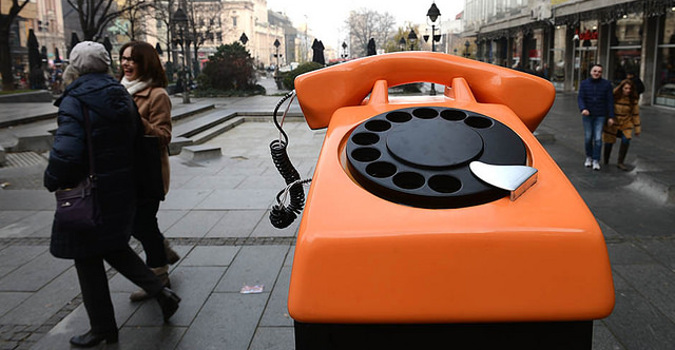Ending violence against women

Half of all women in Serbia have suffered some form of violence. Prevention, protection, prosecution, referral mechanisms, and integrated policies on domestic and other forms of violence against women in Serbia remain inadequate. Violence against rural women in Serbia remains under-reported, with social norms often preventing women from obtaining protection information. Since 2012 alone, more than 300 women in Serbia have been killed as a result of gender-based violence.
UN Women in Action in Serbia
UN Women assists the Government of Serbia to implement the global norms and standards enshrined in its international commitments, most notably the CEDAW Committee Recommendations and the Istanbul Convention of the Council of Europe (CoE).
Launched in 2017, the EU-supported regional programme on Ending Violence against Women in the Western Balkans and Turkey Implementing norms, changing minds pivoted in 2020 to focus on supporting women's civil society organizations (CSOs) to deliver innovative, more effective, better quality specialist services attuned to women's COVID-19 pandemic needs and realities.
Anchored in the CEDAW and the Istanbul Convention and aligned with EU accession standards, the Programme focuses on the most disadvantaged women to foster partnerships with women's organizations to end gender-based discrimination and violence against women in the Western Balkans and Turkey.
In Serbia, the Implementing Norms, Changing Minds Programme works to:
- Advocate for the implementation of laws and policies in line with Serbia’s CEDAW and Istanbul Convention obligations;
- Promote social norms to prevent gender discrimination and violence against women;
- Improve police and service providers’ capacity to provide accessible quality services for women subject to violence;
- Use a gender-based understanding of violence against women to improve women’s shelters’ quality standards;
- Build service providers’ digital skills so they can use online applications to deliver SOS and psychosocial support;
- Increase the availability of free legal aid services;
- Develop protocols for state institutions to investigate femicide, and for service providers to respond to violence against women;
- Support relevant groups to develop individual safety plans for survivors of violence;
- Provide economic reintegration opportunities for Roma women survivors of violence.
Since 2019, UN Women Serbia has implemented the Norwegian Ministry of Foreign Affairs-funded Improved Safety of Women in Serbia project, which aims for women and girls in Serbia to live free from gender-stereotypes and violence.
Partnering with Serbia’s Ministry of Interior, Commissioner of Protection of Equality, and women’s CSOs, UN Women Serbia has:
- Improved, in cooperation with the Ministry of Justice, access to justice for women survivors of violence by:
- Providing tablets to all 66 basic courts in Serbia so hearing impaired women survivors of violence have access to justice; and
- Distributing to women survivors of gender-based violence 4,000 leaflets and 2,700 brochures of simplified, comprehensive information on criminal law, litigation, executive and misdemeanour procedures.
- Supported, in cooperation with the Commissioner for Protection of Equality, awareness-raising activities so rural women can access mechanisms that protect them from violence and gender-based discrimination;
- Trained journalists to avoid gender-stereotyping in reporting about violence against women and girls and femicide, and helped develop guidelines and recommendations for ethical and non-discriminative reporting about violence against women.
UN Women, with UNDP, UNFPA and UNICEF, also carry out the Swedish International Development Cooperation Agency (SIDA)-funded joint UN project, Integrated Response to Violence against Women and Girls in Serbia, which focuses on improving responses to violence and ensuring safety and services for survivors of violence.
To tackle this complex issue, UN Women:
- Partner with the Provincial Secretariat for Social Policy, Demography and Gender Equality to improve response systems and enable local services for women and girls survivors of violence by engaging with government, NGOs, media and the social, judicial, police, education, and health sectors;
- Work in Vojvodina to increase the knowledge and sensitivity of local professionals and to improve support and protection services for women from vulnerable groups and for victims of sexual violence. This includes:
- Providing specialized services for victims of sexual violence and rape in four local health system centres;
- Increasing local professionals’ knowledge and sensitivity by training them how to manage cases of sexual violence, including those involving marginalized women.
In October 2021, UN Women began to implement, in partnership with the Coordination Body for Gender Equality (CBGE), and the Ministry of Labour, Employment, Veteran, and Social Affairs the Foreign, Commonwealth & Development Office (FCDO, UK)-funded project, Safeguarding of Women and Girls in Serbia.
Aiming to make national and local authorities and stakeholders use internationally validated tools and practices so they are more responsive to and better address domestic and public violence against women and girls, Safeguarding of Women and Girls in Serbia project activities focus on having:
- National-level authorities adopt measures to prevent and respond to gender-based violence against women and girls, in public and private spaces;
- Local-level authorities and stakeholders apply internationally validated tools and practices to better address violence against women and girls, including in public spaces;
- Shelters for survivors of domestic and gender-based violence improve performance, increase capacity, and offer equal access to all women and girls exposed to violence.